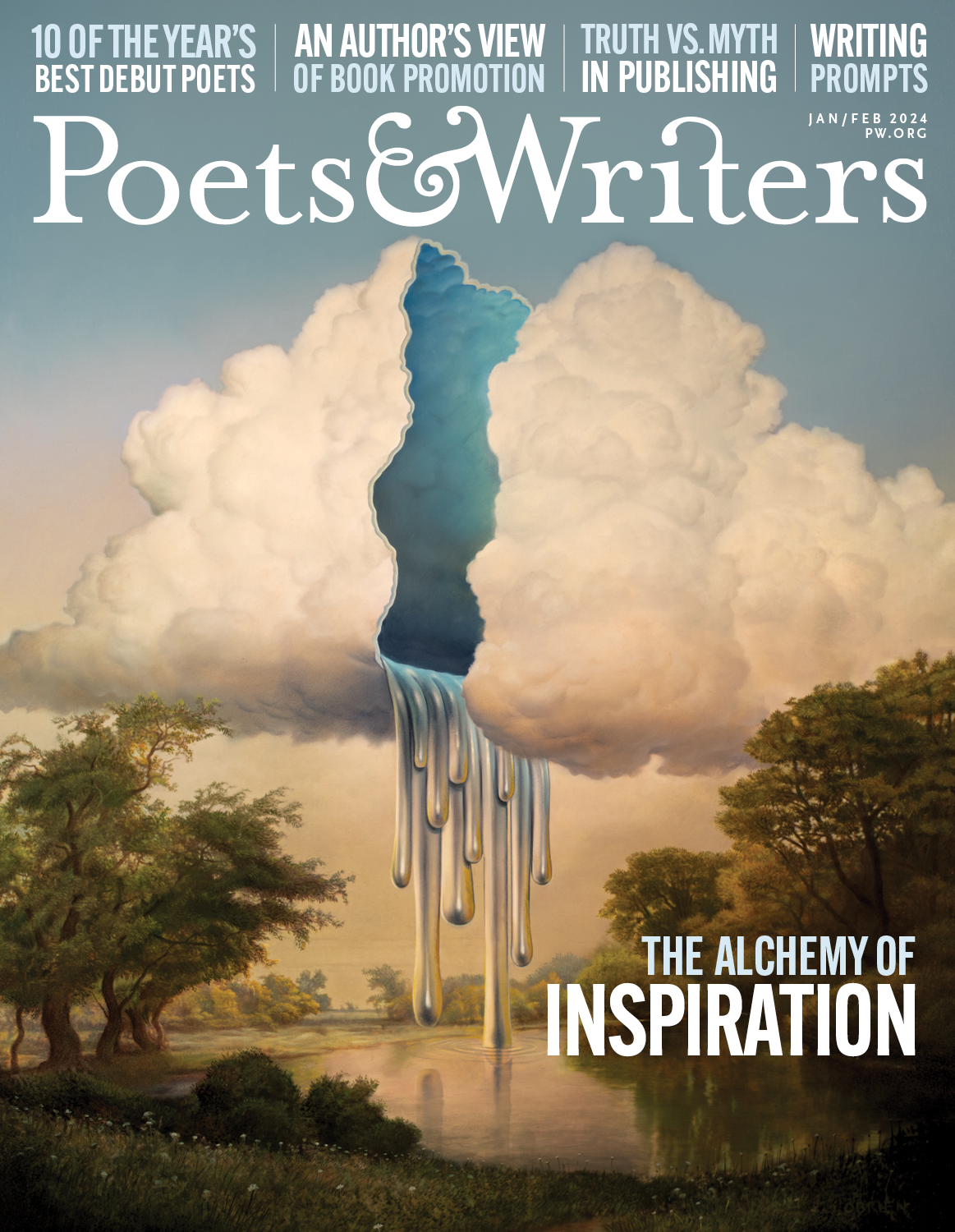Poets & Writers Magazine welcomes feedback from its readers. Please post a comment on select articles at pw.org, e-mail editor@pw.org, or write to Editor, Poets & Writers Magazine, 90 Broad Street, Suite 2100, New York, NY 10004. Letters accepted for publication may be edited for clarity and length.
Letters
Feedback from readers
I really was drawn into the special section “The Alchemy of Inspiration” (January/February 2024). I was especially intrigued by Lidia Yuknavitch’s writing in “Fire: Be the Revolution.” My daughter died at age fifty. I could “see” Lidia’s reaction to her situation. When my daughter died, I just could not let go of holding her hand. Lidia writes about how we do not have to be perfect…just bear witness however we can. If you are a writer—write. I am a writer, and it’s true, the only way I can create change or share my thoughts with others is to write. Perhaps it will help someone heal, perhaps it will help someone smile, or maybe it will entice someone to start writing their story. Together this will all change our world for the better.
Karen Howick Nesvold
Omaha, Nebraska
Thanks to Eileen Pollack for her analysis in “The Antithesis of Inspiration: Why ChatGPT Will Never Write a Literary Masterpiece” (January/February 2024). Still, I worry that the larger issue may not be the ability of AI to create literature but the waning ability of humanity to read or even recognize it. AI and people are following inverse trajectories. The computer mind will, over time, consume more data, swallow more literature, and generate accordingly. ChatGPT’s public life is but one year old; imagine AI in twenty-five years. Regarding the human trajectory, the rate of illiteracy in the United States was under 10 percent in 1950 but exceeds 20 percent today; in the decade from 2011 to 2021, college English majors dropped by a third; global book sales dropped 10 percent from 2021 to 2022; the number of books read in one year per person has dropped from 18.5 in 1999 to 15.6 in 2016 and 12.6 in 2021, and less than half of those books were actually finished; a third of America’s newspapers shuttered in the last twenty years, and two-thirds of the reporters are gone. In more than 3,300 cases of book-banning in the United States in 2023, more than 1,500 different book titles were removed from schools and libraries. Imagine education in twenty-five years. In the end, AI may or may not be able to produce a work of literary genius, but the real question is if we will be able to recognize genius if we see it.
Brooks Mencher
Ithaca, New York
I feel inspired by your magazine and read every issue. I am glad you showcased older writers in “5 Over 50” (November/December 2023). It’s important to let people know that age is no barrier. But I am surprised that it’s considered remarkable to publish a book when you’re over fifty. I thought it was just par for the course. In my fifties, my career as a freelance magazine writer was at its height. At age 73, I’m close to self-publishing my first book, “Heal Your Mental Illness: The Doctors Step-by-Step Program for Disorders From Depression to Schizophrenia.” I thought this was the trajectory of many writers because, as they say, “Writers never retire.”
Ambuja Rosen
Ashland, Oregon
[Corrections]
The title of Lillian-Yvonne Bertram’s poem “it took me all those years to remember who I was and why” was misprinted in “Poetry NFTs Are Having a Moment” (January/February 2024) by Alissa Greenberg. Additionally, the names of VERSEverse cofounders Ana María Caballero and Kalen Iwamoto were inadvertently omitted.







